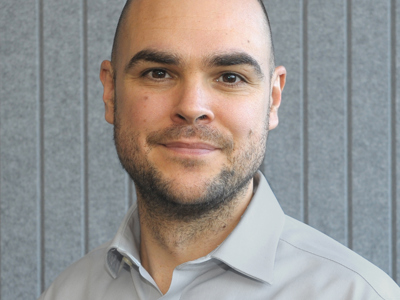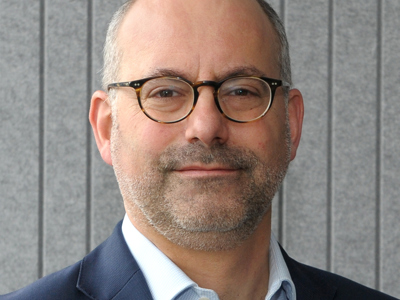
EY drops appeal in Dubai whistleblowing case
The professional services firm EY has dropped its appeal in the case brought against the firm by whistleblower and former EY partner, Amjad Rihan.
Posted on 29 March 2021
The case concerned allegations that EY had covered up the adverse findings of a sustainability audit into the Dubai Gold trade, including evidence of money laundering and conflict minerals, causing the partner in charge of the audit, Mr Rihan, to resign. After a trial, Mr Justice Kerr ruled in April 2020 in favour of Mr Rihan and found that senior EY Global executives had consistently acted in breach of the relevant professional and ethical standards when dealing with Mr Rihan’s concerns,
The move by the global accountancy firm means that Mr Rihan will receive $10.8m (subject to adjustment for tax) in damages awarded when he won his case against his former employer in April, 2020.
The case represents the first time that UK-based governing entities and service companies within a global accountancy firm have been held liable for breaching ethical standards with regard to an audit conducted by an overseas member of the corporate network.
Leigh Day solicitor Paul Dowling says the April 2020 judgment sends a clear message to multinational companies that corrupt practices will not be tolerated, irrespective of where in the world such companies operate. Would-be whistleblowers should also find comfort in knowing that they will receive the protection of the law if they refuse to participate in unethical conduct overseas.
The High Court found that EY had repeatedly engaged in serious professional misconduct in its conduct of a ‘conflict minerals’ audit of the Dubai-based gold refiner, Kaloti Jewellery International.
Mr Rihan, who tried to raise the alarm about the misconduct, was forced out of his job and had to flee Dubai in fear for his safety.
The Court found that EY failed to perform the Kaloti audit in an ethical and professional manner and breached its duty to Mr Rihan. EY’s appeal has been formally dismissed by the Court of Appeal.
Paul Dowling says the Court’s ruling represents an important development in the law for British companies operating overseas in two key ways:
The court “emphatically rejected” EY’s case that ‘there is no higher authority than the DMCC’. This means that organisations providing professional services overseas cannot exculpate themselves from their ethical and professional obligations simply because a foreign regulator tells them to do so.
The court found that professional auditors are required to abide by their professional code of conduct. If local law mandates unethical behaviour in breach of the code, English law requires the auditor to perform its duty of care, which may mean turning down business, terminating engagements and even breaching client confidentiality.
In certain circumstances multinational organisations can be held liable in their home courts in relation to professional and ethical misconduct associated with their overseas operations. This is a ground-breaking duty which for the first time establishes an obligation on the head office of a multinational organisation to ensure that individual staff members are not embroiled in unethical conduct overseas. It is also the first time that the legal principles of multinational parent company liability have been applied in the context of auditing and assurance.
Leigh Day solicitor Paul Dowling said:
“We welcome EY’s decision to abandon their appeal against the High Court’s findings of serious professional misconduct and mistreatment of our client. For seven years EY has stubbornly defended its actions, accusing Amjad Rihan of being a liar, a freeloader and a fantasist. This false and vindictive narrative, perpetrated at the highest level of the EY organisation, ultimately led the court to uncover serious breaches of EY’s professional duties along with failings in its systems and safeguards for the protection of whistleblowers. It is hoped that EY will now look long and hard at this judgment and use it as a catalyst for reform within the organisation to ensure that nothing like this ever happens again.”
Leigh Day partner Daniel Leader added:
“EY was found by the High Court to have breached its professional duties of integrity, objectivity and professional behaviour by covering up evidence of money laundering and conflict minerals in the Dubai gold trade. These excoriating findings relate to managers who at the time were some of the most senior of EY’s global operations. Amjad Rihan, our client, who sacrificed his professional career by becoming a whistle-blower, has been entirely vindicated by the Court. This case is an important legal precedent which offers protection to whistle-blowers who uncover corrupt and unethical conduct in group operations outside of the UK.”
For seven years EY has stubbornly defended its actions, accusing Amjad Rihan of being a liar, a freeloader and a fantasist.
Amjad Rihan's story
Amjad Rihan worked on an audit in 2013 for EY to provide an independent written view on Kaloti’s business and gold sourcing practices. It would enable Kaloti to receive accreditation from gold industry regulators and access lucrative international gold markets. The ‘compliance report’ would be relied upon by end-users of the gold, such as consumers and bullion banks.
During the audit Mr Rihan found serious irregularities which made him suspect that Kaloti was engaged in money laundering, including:
Kaloti was knowingly dealing in gold bullion smuggled out of Morocco coated in silver, to deceive the Moroccan authorities into believing that it was silver, thereby avoiding restrictions on the export of gold.
In 2012 Kaloti had taken part in cash transactions in gold involving about $5.2 billion
Kaloti engaged in transactions with high-risk countries such as Sudan, DRC and Iran without proper due diligence. Gold is identified internationally as a ‘conflict mineral’, which means that it carries an increased risk of being traded for the purposes of financing terrorist activity or organised crime.
When Mr Rihan told his findings to Kaloti and the Dubai gold industry regulator (the DMCC), he was pressured by Kaloti and the DMCC to conduct its reporting in a way that would cover up the Moroccan gold and cash transactions issues.
Mr Rihan resisted and the matter was escalated to EY global executives in London where instead of reporting the audit findings or terminating the Kaloti engagement, they joined in a cover-up designed to obscure the audit findings. EY’s role in the cover up included:
- Proposing that the audit period be amended to avoid reporting the damaging findings
- Removing reference to Morocco in the audit report, changing the coating of gold bars with silver to “documentary irregularities”
- Failing to indicate the scale of the cash transactions ($5.2bn)
- Accepting false accounts from Kaloti regarding the Moroccan gold
- Endorsing misleading final reports
When Mr Rihan refused to co-operate he was subjected to improper pressure and intimidation, and accused of lacking professionalism. Fearing for his safety, he eventually fled Dubai for the UK.
He was left with no choice but to resign and put the findings into the public domain. The individuals behind the company which supplied the silver-coated Moroccan gold were later convicted on charges related to money laundering and drug trafficking in a French court in 2017.
At the trial, EY’s former Managing Partner for Europe and Middle East, Mark Otty, admitted that he had never read the International Federation of Accountants (IFAC) code of professional standards. He was found by the court to be “uninterested in questions of professional ethics”. Similarly, Bernard Heller, EY’s Professional Practice Director for Europe, the Middle East, India and Africa, did not know that he was bound by the IFAC Code. Meanwhile EY’s global deputy general counsel, Herve Labaude, was found to be an “unreliable witness on undocumented matters”.
Mr Rihan, by contrast, was found to be “truthful, honest and reliable”.
In his claim against EY in the High Court, the judge found that EY had breached its duty to Mr Rihan by reason of its failure to perform the Kaloti audit in an ethical and professional manner. In particular, the judge found that EY lost its “moral compass” in its conduct of the audit. The judge also found that laptops had been destroyed by the Defendants despite litigation being in reasonable contemplation, and there was “documentary evidence of a reluctance on the part of EY to create an open record or even discuss the issues over the telephone”.

Former EY partner awarded $10.8m in damages in legal case against the global accountancy firm
The High Court has today ruled that EY repeatedly breached the Code of Ethics for Professional Accountants at the highest levels of management during an audit of a leading Dubai Gold refiner.
Whistle-blower takes EY to trial in money laundering cover-up case
A former partner of the accountancy firm EY, formerly known as Ernst & Young, who blew the whistle on an allegedly unlawful and unethical audit on a Dubai gold refiner is due to have his case heard in the High Court in London in a three-week trial commencing the week of 27 January 2020.





